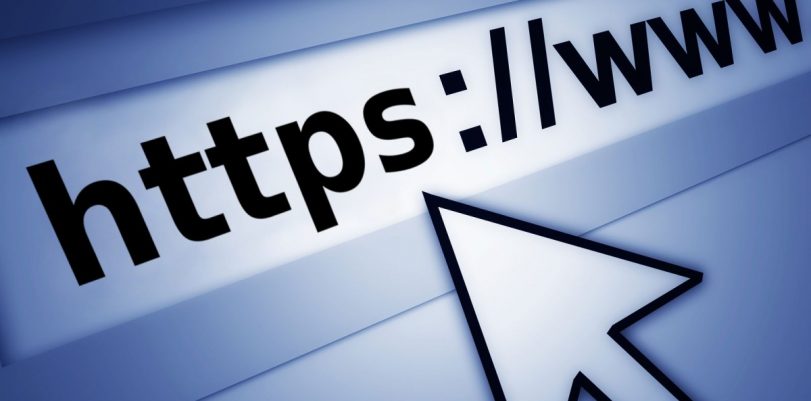Different services that we use online in our everyday life require different levels of protection and security. For example, if you look closely while accessing some of the websites such as your email service, your bank, or even social media networks such as Facebook, you might notice a small padlock icon appearing in your browser’s address bar.
If it is there, that means that the website has an HTTPS certificate, which uses strong encryption and provides an extra security layer — one which you will not get on the regular HTTP connection.
HTTP used to be the most common type of connection, but in recent years, with online threats continuously growing, a lot of websites and services were forced to shift towards HTTPS in order to remain relevant. This connection protects your data by encrypting it and protecting it from possible attacks.
With no HTTPS to protect your data, there is a high possibility that it would end up being compromised due to the lack of encryption. In other words, all data coming from websites that still only use HTTP can be intercepted. Of course, there are still many websites around that do not use HTTPS, although the majority of important services has already moved towards the increased security, embracing HTTPS — whether to secure their users or simply to remain relevant.
With that in mind, it is clearly less safe to use HTTP websites. However, you can still enjoy them and remain safe online by using a VPN service, which will protect you from online threats such as hackers or spying agencies.
The difference between HTTP and HTTPS
In order to understand the difference between the two, we first need to understand how they work. When it comes to HTTP, it is a protocol that creates a passage from the website to the viewer. The information travels from the servers directly to your browser through HTTP, but it is exposed for everyone to see, provided that they have the proper skills and tools — neither being difficult to obtain these days.
HTTPS does pretty much the same thing, but it adds an additional protective layer to your data flow by encrypting the information and making it unreadable. The S in HTTPS stands for Secure, which is what you should look for when accessing different websites on the internet.
You can do this easily by checking your address bar. If the URL starts with https://, that means that the address is secure. You can also search for the small padlock on the left side of the address itself. Alternatively, if there is only http://, then the website you are accessing will not encrypt your traffic, and it will remain exposed. This, in turn, means that hackers will easily be able to monitor your activities and potentially even uncover your login credentials, as well as other private information that they can then use against you.
You must be especially careful when it comes to entering your financial information and personal data, which is never secure on websites that do not use HTTPS. Of course, sometimes you might find yourself in a situation where you have to use an unprotected website, and in those situations, you should always use a VPN.
Using HTTP websites without a VPN
If it happens that you must access an HTTP site, and you do not use a VPN to do it safely, your data will be exposed to pretty much anyone. This will allow them to see a plethora of information about you, including which ISP (Internet Service Provider) you are using, which server you are connected to, your local Wi-Fi operator, and more.
Of course, as mentioned earlier, they would also be able to see what you are doing on the non-HTTPS website. While HTTPS websites are not 100% secure themselves, the chance of your data falling into the wrong hands effortlessly is eliminated, and hackers would need to have a lot of skill, tools, knowledge, and luck to be able to get to your data that way.
While your ISP information will be visible to the hackers, it will also be visible to your internet provider as well, and they are no less motivated to gather your data, analyze it, send it to the government, or even sell it to advertisers and other third parties.
Not to mention the usage of malicious software, which may manifest itself in the shape of interesting ads on which you may accidentally click and infect your entire system. While some Wi-Fi operators do their jobs properly, there are many who might add malicious software intentionally. This is particularly dangerous on public Wi-Fi, which is often used as a hunting ground for hackers.
How can a VPN protect you?
VPNs, or Virtual Private Networks, are companies that can provide you with a security app that you can install on your phone, laptop, desktop, tablet, and most other devices you might possess. With these apps, you can conceal your identity, encrypt your traffic, and even add an additional layer of security called security protocol, which shields your online traffic from view.
This is more than necessary today, when various governments, agencies, and even individuals use advanced technology to spy on online traffic, hoping to dig out important secrets, private data, and generally learn more about people’s privacy for various purposes.
VPN can protect you from them, as well as from other dangers such as malware.
It can even protect your data from your own ISP, by shielding it and recording your actions on the VPN-owned servers, and then deleting it so that nobody else can get to it.
Even on public hotspots, you can stay safe with a VPN, which is great for those who are always on the move. So don’t risk your data and online security — get a VPN like TorGuard, and don’t depend on whether the website you are visiting is using HTTPS or not.
